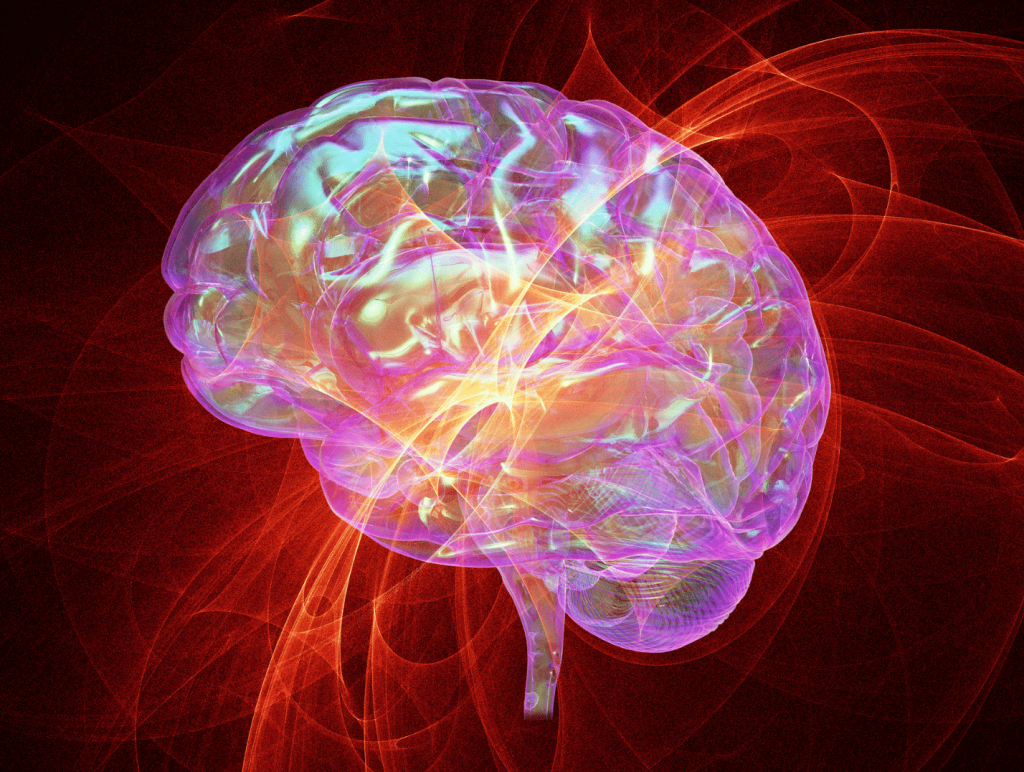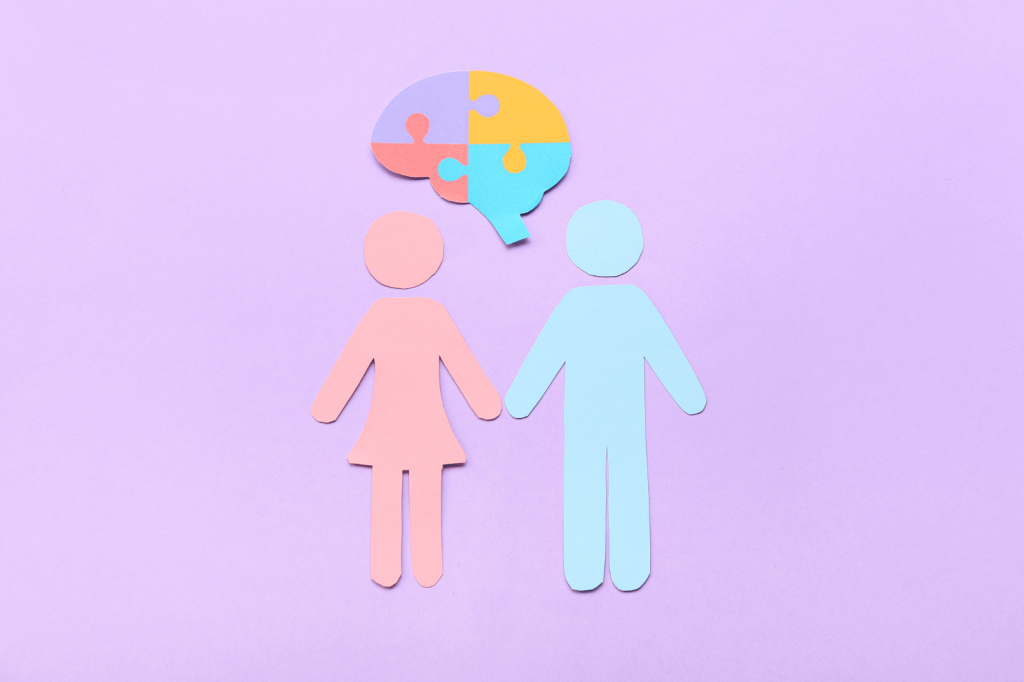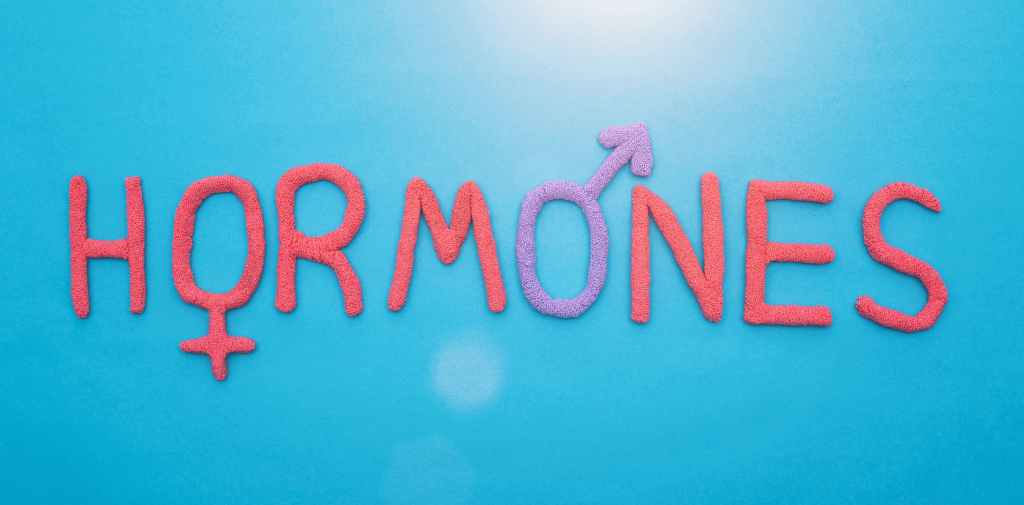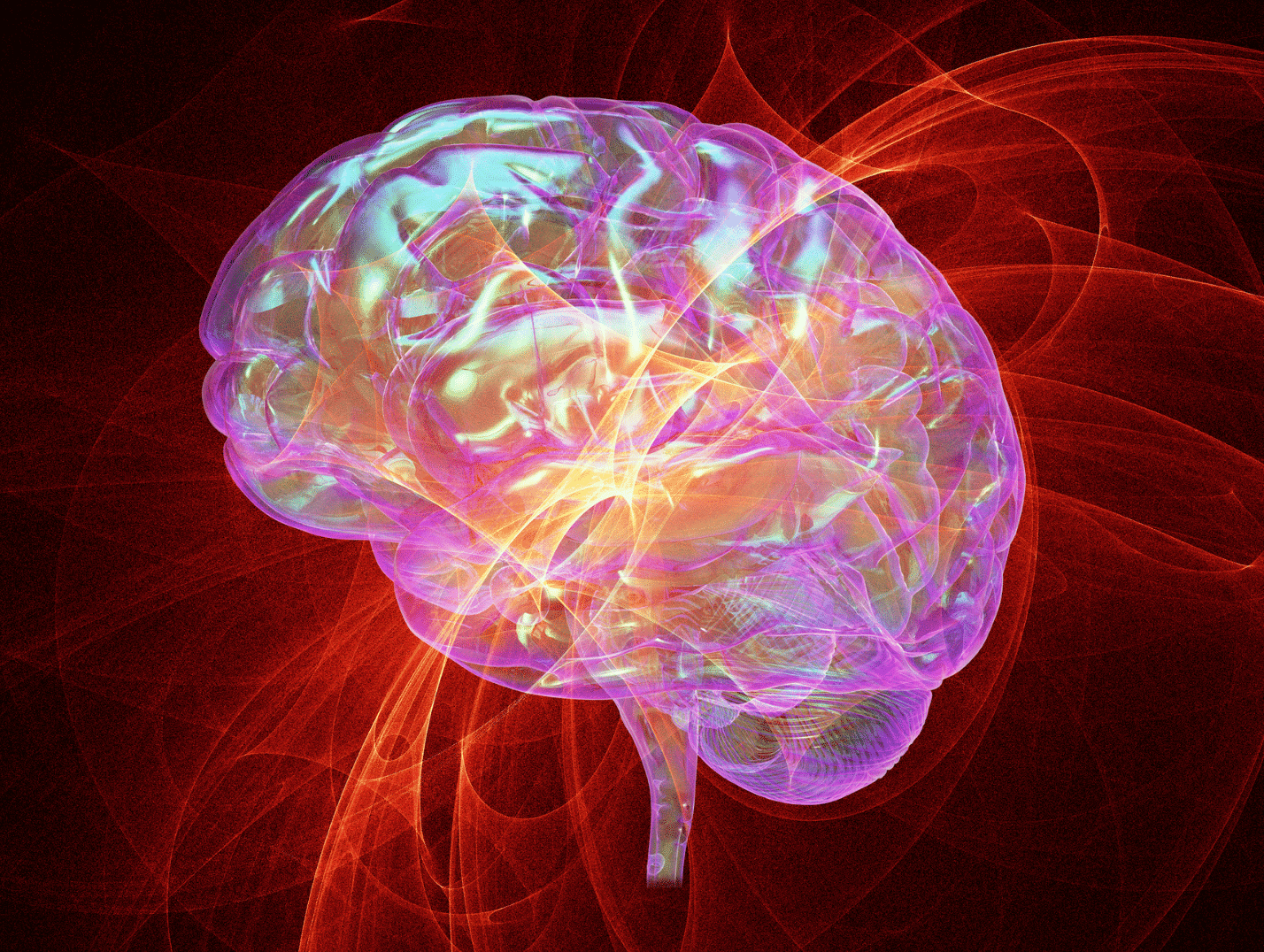Mr. Noots and his team have been meticulously learning from his client feedback for as long as he’s been creating personalized nootropics. Early in his career, he noticed that some clients that were aging were not responding to the nootropics.
Once he tried introducing pro-hormones such as DHEA and pregnenolone, his clients started to reap significant cognitive benefits from the nootropics. In other words, it’s essential for the brain to have these things to function well:
- Hormones
- Oxygen
- Sleep
- Nutrition
Even the best nootropics cannot replace these other needs.
In this article, we’ll cover the fascinating roles of sex steroid hormones in your brain and cognitive function. Then, we’ll discuss whether you’re the best candidate to reap significant benefits from sex hormone support with our DHeA/DHSheA formulas.

Sex Steroid Hormones And Your Brain
Neurotransmitters are not the only power players in the brain—sex hormones strongly control your brain function and maintenance. We know this because there are numerous sex hormone receptors throughout the brain in both males and females.
Also, the hypothalamus and pituitary in your brain control your sex hormone production. In short, your brain has a two-way relationship with your sex hormones. This explains steep declines in cognitive health (and often mental health) in some women approaching menopause and some men with low testosterone.
How Your Brain Controls Your Sex Hormones
Sex hormones are part of the hypothalamus-pituitary-gonadal (HPG) axis. The hypothalamus and pituitary are two small glands that lie deep in the brain. Whereas your gonads refer to ovaries in females and testicles in males. Your brain controls sex hormone levels through the following:
- The hypothalamus releases gonadotropin-releasing hormone (GnRH).
- GnRH then stimulates the anterior pituitary gland to release gonadotropins (luteinizing hormone, LH and follicle-stimulating hormones, FSH) into the bloodstream.
- LH and FSH travel to the gonads and stimulate the release of sex steroid hormones, including estrogen, progesterone, and testosterone.
The adrenal glands also produce a small amount of sex hormones in both genders.
How Sex Hormones Influence Your Mood And Cognitive Function
Sex hormones strongly influence cognitive functioning, specifically enhancing learning and memory. During development, all the way to your late 20s, sex hormones also influence your brain development.
Aside from classic brain functions, your brain also regulates many essential functions, including:
- Breathing
- Digestion and gut movement
- Body temperature
- Blood pressure
Not surprisingly, your sex hormones can also affect many of these bodily functions through your brain.
What Happens In Women’s Brains As They Go Through Menopause
During menopause, sex hormones in a woman’s body fluctuate greatly. In particular, the levels of estrogen and progesterone fall, causing LH and FSH to go up. This loss of sex hormones is associated with an increased risk for cognitive decline.
In fact, women who have menopause at an older age or who remain reproductive for a longer period of time have higher cognitive performance, and their cognitive decline is delayed.
A six-year study of 1,903 perimenopausal women explored the relationship between cognitive performance changes and menopause symptoms of depression and anxiety. Participants took three tests:
- Processing speed
- Verbal memory
- Working memory
Those reporting higher symptoms of depression and anxiety had slower cognitive processing speeds than those who did not demonstrate menopausal symptoms.
A meta-analysis of studies examined cognition and depression during different stages of the menopausal transition. The results showed that postmenopausal women had lower performance on tests of phonemic verbal fluency and delayed verbal memory compared to perimenopausal women.
Additionally, both perimenopausal and postmenopausal women were more likely to experience significant mood issues than premenopausal women.
So, what’s happening in the brain? A study of 182 women ages 40-65 provided some insight. They found three major neurological changes:
- Brain Anatomy: Brain structure can be affected, particularly in cortical and subcortical regions. Women in the post-menopausal and perimenopausal groups show lower gray matter volume in certain areas. However, post-menopausal women experience selective recovery in the precuneus. The precuneus is important for social processes, memory, and information integration.
- White Matter Volume (WMV): Another change is in the white matter, which is like the wiring that helps different brain areas communicate. Women going through menopause may experience a loss of white matter compared to men of the same age. However, despite this loss, the remaining white matter becomes more efficient in how it works. It’s like a smaller but smarter wiring system in the brain. This helps the brain to work better even with less white matter.
- Brain Energetics: The way the brain gets its energy can also change. In post and perimenopause groups, certain parts of the brain use less glucose, the brain’s main energy source.
Some clinical studies suggest that fats in the white matter may be broken down into ketones for energy, which may contribute to the loss of brain tissues during menopause. However, the overall rate of glucose use in the brain stays relatively stable after menopause, which means the brain adjusts to a new way of getting energy after a long time without estrogen.
In addition, there is more blood flow and energy molecule called ATP in certain brain regions, specifically in the areas related to thinking and remembering things. More blood flow and ATP are linked to better overall brain function. These changes suggest that the brain adapts to alternative energy sources when less glucose is available.
What Happens In Men’s Brains As They Age

Like women, men also experience a decline in sex hormones as they age. Women undergo menopause and have a steep hormonal decline, while men experience a more gradual and progressive decline, especially in testosterone and dehydroepiandrosterone (DHEA).
While everyone’s brain shrinks with age and the brain’s metabolism slows down, these changes seem to happen faster in men. On average, the male brain is functionally three years older than the female brain throughout young adult land adulthood.
A study compared age-matched brain images of 53 males and 50 females. Researchers found that the male hippocampus was consistently smaller than females. Men also had a significant decrease in the size of the caudate putamen (which controls motor function) while women did not.
Hormones Involved In Brain Changes
Estrogen
Estrogen receptors are widely distributed throughout the brain. There are two major subtypes:
- Alpha estrogen receptors
- Beta estrogen receptors
In general, there are more alpha receptors in regions involved in reproductive and sexual behaviors, such as:
- Hypothalamus
- Preoptic area
- Amygdala
These areas help regulate the release of hormones and control sexual behavior and reproductive function.
Beta receptors are found in various brain regions, including:
- Hippocampus
- Cerebral cortex
- Cerebellum
The hippocampus is associated with learning and memory processes, while the cerebral cortex is involved in higher cognitive functions.
In your brain, estrogen:
- Promotes neurotrophin synthesis. Neurotrophins are proteins that act like fertilizers for your brain. They improve neuronal survival, growth, and functions.
- Modulates cholinergic and dopaminergic neurotransmitter systems
- Protects the brain from stress and inflammation.
- Helps increase serotonin activity by increasing the number of serotonin receptors and enhancing the transport and uptake of serotonin. Serotonin plays a critical role in mood regulation.
Because estrogen is so important for brain functions, women in particular struggle with cognitive decline during menopause. Many menopausal symptoms (such as hot flashes) occur through the brain.
In many cases, hormone replacement can help restore verbal working memory and attention.
It is important to note that hormone replacement therapy also comes with risks that should be weighed with your healthcare provider based on your individual health circumstances.
Men have estrogen receptors in their hippocampus, prefrontal cortex, and amygdala. These areas are important for memory, executive function, and emotional regulation. Estrogen promotes neural growth and synaptic plasticity.
Men with higher levels of estradiol (a form of estrogen) have better verbal memory and executive function than men with lower levels. As men age, the levels of estrogen fall, affecting cognitive abilities.
Testosterone
Testosterone is the primary sex hormone responsible for developing and maintaining male physical and reproductive characteristics. Testosterone also plays many important roles in brain function.
With age, testosterone levels in males decline. Men with higher levels of testosterone perform better on tests of spatial ability than men with lower levels. Supplementation may help improve cognitive function.
Testosterone is associated with improved spatial abilities. Testosterone and its metabolites exert a neuroprotective effect and prevent dendritic atrophy after the induced death of surrounding neurons. Testosterone depletion increases susceptibility to oxidative damage in the brain.
A meta-analysis of 14 clinical trials explored the effects of testosterone supplementation on cognition in aging men. Researchers determined that, compared to a placebo group, testosterone supplementation:
- Improved executive functions like planning and problem-solving
- Increased cognitive performance and psychomotor speed
Although low testosterone levels are associated with cognitive decline, excessive levels are associated with increased aggression and impulsive behavior. So, it’s important to maintain optimal testosterone levels to ensure cognitive functions remain intact.
Declining testosterone levels in women may lead to increased feelings of anxiety and unhappiness. In terms of cognitive function, testosterone seems to play a major role for women for:
- Spatial navigation
- Mental rotation – the ability to play with objects in your mind and see it from different angles
Testosterone therapy, however, does not seem as beneficial for the brains of aging women. A placebo-controlled study of 71 women post-hysterectomy explored the effects of testosterone supplementation on cognitive function. After 24 weeks of receiving testosterone injections, there were no differences in cognitive function between those who did and did not receive testosterone.

Progesterone
Progesterone receptors are found in key areas of the brain, including the hippocampus, amygdala, cerebellum, frontal cortex, hypothalamus, and thalamus.
- Controls brain function and maintenance and has a neuroprotective effect on the brain.
- Enhance neuronal function by enhancing synaptic transmission and by forming and reducing synapses.
Progesterone also acts on GABA (gamma amino butyric acid) receptors throughout the brain to produce a calming effect. GABA is the primary inhibitory transmitter in the brain and is responsible for reducing neuronal excitability throughout the nervous system. Increased progesterone levels increase GABA function and, therefore, more calming feelings.
Progesterone also promotes sleep by stimulating your brain to produce GABA. This helps calm and ease you into a state of relaxation. Many menopausal women have found that their sleep quality improves once they take progesterone.
Progesterone is a hormone primarily associated with the reproductive function in women, but it is also present in men, albeit in smaller quantities. It is involved in enhancing cognitive function.
Progesterone has a neuroprotective effect on the brain: it protects neurons by acting as a free-radical scavenger, thereby decreasing the harm caused by free radicals.
Furthermore, Progesterone also modulates mood and behavior.
Low progesterone levels in men may be associated with an increased risk of mood issues. In addition, progesterone has anti-anxiety and sedative effects due to its relationship with GABA, which may help to promote relaxation and sleep.
DHEA
Dehydroepiandrosterone (DHEA) is a hormone from the adrenal glands that can get converted into androgens and estrogens. DHEA levels decline with age.
One of the most important effects of DHEA on the brain is its potential neuroprotective properties. It protects against oxidative stress, which can cause damage to cells and tissues, including in the brain. DHEA treatment improves cognitive function and increases gray matter volume in the brains of older adults.
DHEA has a strong influence on mood and stress management. Older adults who were given DHEA supplements experienced mood enhancement.
DHEA has many potential benefits for the aging male brain, including neuroprotective effects, mood regulation, and stress reduction.
Pregnenolone
Pregnenolone is one of the most abundant neurosteroids in the body. It is produced naturally in the body, primarily in the adrenal gland and the gonads. It is a precursor to many other hormones, including testosterone, estrogen, and cortisol. Pregnenolone levels decline with age.
Pregnenolone exerts neuroprotective effects by protecting the brain against damage caused by stress and inflammation. Pregnenolone and its metabolites work on the amygdala and enhance neurocircuits related to mood and emotions. Furthermore, animal studies show that pregnenolone improves cognition by enhancing memory and learning.
Conclusion
These understandings of how closely hormones influence brain health, cognition, and nootropic responses led Mr. Noots to formulate DHeA/DHsheA. They are not just DHEA/pregnenolone supplements, but they’re also supercharged brain, hormone, and nutrition support for aging brains. If you suspect age-related hormonal declines could be keeping you from your full potential, definitely try these blends.
References:
- Marrocco J, McEwen BS. Sex in the brain: hormones and sex differences. Dialogues Clin Neurosci. 2016;18(4):373-383. doi:10.31887/dcns.2016.18.4/jmarrocco
- Gurvich C, Hoy K, Thomas N, Kulkarni J. Sex differences and the influence of sex hormones on cognition through adulthood and the aging process. Brain Sci. 2018;8(9):163. doi:10.3390/brainsci8090163
- Zárate S, Stevnsner T, Gredilla R. Role of estrogen and other sex hormones in brain aging. Neuroprotection and DNA repair. Front Aging Neurosci. 2017;9:430. doi:10.3389/fnagi.2017.00430
- Greendale GA, Wight RG, Huang MH, et al. Menopause-associated symptoms and cognitive performance: results from the study of women’s health across the nation. Am J Epidemiol. 2010;171(11):1214-1224. doi:10.1093/aje/kwq067
- Weber MT, Maki PM, McDermott MP. Cognition and mood in perimenopause: a systematic review and meta-analysis. J Steroid Biochem Mol Biol. 2014;142:90-98. doi:10.1016/j.jsbmb.2013.06.001
- Klosinski LP, Yao J, Yin F, et al. White matter lipids as a ketogenic fuel supply in aging female brain: Implications for Alzheimer’s disease. EBioMedicine. 2015;2(12):1888-1904. doi:10.1016/j.ebiom.2015.11.002
- Goyal MS, Blazey TM, Su Y, et al. Persistent metabolic youth in the aging female brain. Proc Natl Acad Sci U S A. 2019;116(8):3251-3255. doi:10.1073/pnas.1815917116
- Király A, Szabó N, Tóth E, et al. Male brain ages faster: the age and gender dependence of subcortical volumes. Brain Imaging Behav. 2016;10(3):901-910. doi:10.1007/s11682-015-9468-3
- Almey A, Milner TA, Brake WG. Estrogen receptors in the central nervous system and their implication for dopamine-dependent cognition in females. Horm Behav. 2015;74:125-138. doi:10.1016/j.yhbeh.2015.06.010
- Wharton W, Gleason CE, Olson SRMS, Carlsson CM, Asthana S. Neurobiological underpinnings of the estrogen – mood relationship. Curr Psychiatry Rev. 2012;8(3):247-256. doi:10.2174/157340012800792957
- Maki PM, Thurston RC. Menopause and brain health: Hormonal changes are only part of the story. Front Neurol. 2020;11:562275. doi:10.3389/fneur.2020.562275
- Moffat SD, Zonderman AB, Metter EJ, Blackman MR, Harman SM, Resnick SM. Longitudinal assessment of serum free testosterone concentration predicts memory performance and cognitive status in elderly men. J Clin Endocrinol Metab. 2002;87(11):5001-5007. doi:10.1210/jc.2002-020419
- Joseph JA, Shukitt-Hale B, Casadesus G. Reversing the deleterious effects of aging on neuronal communication and behavior: beneficial properties of fruit polyphenolic compounds. Am J Clin Nutr. 2005;81(1):313S-316S. doi:10.1093/ajcn/81.1.313s
- Celec P, Ostatníková D, Hodosy J. On the effects of testosterone on brain behavioral functions. Front Neurosci. 2015;9:12. doi:10.3389/fnins.2015.00012
- Huang G, Wharton W, Travison TG, et al. Effects of testosterone administration on cognitive function in hysterectomized women with low testosterone levels: a dose-response randomized trial. J Endocrinol Invest. 2015;38(4):455-461. doi:10.1007/s40618-014-0213-3
- Kapur J, Joshi S. Progesterone modulates neuronal excitability bidirectionally. Neurosci Lett. 2021;744(135619):135619. doi:10.1016/j.neulet.2020.135619
- Nolan BJ, Liang B, Cheung AS. Efficacy of micronized progesterone for sleep: A systematic review and meta-analysis of randomized controlled trial data. J Clin Endocrinol Metab. 2021;106(4):942-951. doi:10.1210/clinem/dgaa873
- Stein DG. Progesterone exerts neuroprotective effects after brain injury. Brain Res Rev. 2008;57(2):386-397. doi:10.1016/j.brainresrev.2007.06.012
- Auger CJ, Forbes-Lorman RM. Progestin receptor-mediated reduction of anxiety-like behavior in male rats. PLoS One. 2008;3(11):e3606. doi:10.1371/journal.pone.0003606
- Peltier MR, Sofuoglu M. Role of exogenous progesterone in the treatment of men and women with substance use disorders: A narrative review. CNS Drugs. 2018;32(5):421-435. doi:10.1007/s40263-018-0525-5
- Wolkowitz OM, Reus VI, Roberts E, et al. Dehydroepiandrosterone (DHEA) treatment of depression. Biol Psychiatry. 1997;41(3):311-318. doi:10.1016/s0006-3223(96)00043-1
- Wolkowitz OM, Reus VI, Keebler A, et al. Double-blind treatment of major depression with dehydroepiandrosterone. Am J Psychiatry. 1999;156(4):646-649. doi:10.1176/ajp.156.4.646
- Fisher A, Morley JE. Antiaging medicine: the good, the bad, and the ugly. J Gerontol A Biol Sci Med Sci. 2002;57(10):M636-9. doi:10.1093/gerona/57.10.m636
- Murugan S, Jakka P, Namani S, Mujumdar V, Radhakrishnan G. The neurosteroid pregnenolone promotes degradation of key proteins in the innate immune signaling to suppress inflammation. J Biol Chem. 2019;294(12):4596-4607. doi:10.1074/jbc.RA118.005543
- Brown ES, Park J, Marx CE, et al. A randomized, double-blind, placebo-controlled trial of pregnenolone for bipolar depression. Neuropsychopharmacology. 2014;39(12):2867-2873. doi:10.1038/npp.2014.138
- Vallée M, Mayo W, Le Moal M. Role of pregnenolone, dehydroepiandrosterone and their sulfate esters on learning and memory in cognitive aging. Brain Res Rev. 2001;37(1-3):301-312. doi:10.1016/s0165-0173(01)00135-7
